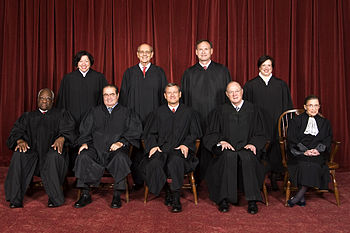We have officially entered the holiday season. Colorful light bulbs pollute neighborhoods alongside Mariah Carey’s “All I Want for Christmas is You.” Kids drool in desire for new toys in shopping mall windows, while their parents work overtime.
At its heart, the holiday represents family and faith. After Christianity became the Roman Empire’s main religion, its civilians held the first Christmas feast on Dec. 25 in 336 A.D. Eventually, the holiday and Christianity saw overlap in religious festivals. That said, America doesn’t have one sole religion, and its citizens are free to choose their own per the Constitution’s first amendment.
The greatest aspect of our country is its melting pot mentality— a conglomerate of identities, cultures and faiths. According to a 2019 Gallup poll, approximately 71% of Americans celebrate Christmas, leaving 29% of Americans who celebrate other holidays or prefer to not participate. Over time, the number of those celebrating the holiday has declined. More than a decade ago, 85% celebrated Christmas regularly. In order to reflect this decline, America should become more inclusive by swapping their “Merry Christmas” greetings for “Happy holidays.”
Around friends, family and people who observe the Christian holiday, it’s expected to use “Merry Christmas” often. However, using a more inclusive greeting or farewell when around strangers seems more appropriate as to not assume their religious beliefs..
Retailers and other stores should also use inclusive greetings, whether on decorative banners or using greeters at the front door. Dominic Belluomini, a second-year student at Las Positas, shared the same sentiment. “Stores should definitely use happy holidays when greeting their customers. It’s more inclusive to all groups, and it should be normal to respect different cultures,” he said.
While urging people to change their habits may produce a unified environment, it needs to be approached gently. Nothing good comes from blunt force. Using “Happy holidays” should become a new norm, but the change should be encouraged gently. Screaming at people to change their opinions without sufficient reasoning can lead to anger and resentment, and nobody needs more of this, especially at a time as stressful as the holidays.
Tyler Martin, another second-year student at Las Positas, opposes this ideology. “It’s the holiday I celebrate, and the holiday the majority of Americans celebrate. People who don’t celebrate Christmas probably wouldn’t get offended by that,” Martin said.
In the case Martin offended someone, he said, “I would apologize. It’s a traditional saying, and I mean no harm by it. I wouldn’t change how I interact with people around the holidays because one person got offended.”
It’s difficult to see why someone would take offense to a simple holiday tradition. However, it’s not my place to say what other people should or shouldn’t be offended by. The best way to display that to people is by exposing them to people of different cultures and religions.
This season is hectic, and it’s easy to use “Merry Christmas” as a default holiday greeting. But let’s respect our American brothers and sisters who don’t celebrate Christmas and prioritize inclusivity.
Mason Newbould is a staff writer for The Express. Follow him @mason_newbie.



